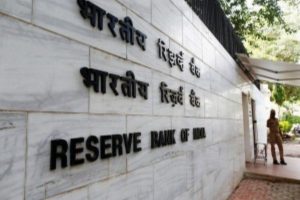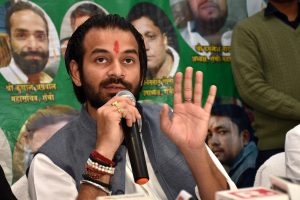The Union Finance Minister, Nirmala Sitharaman, presented the 2024 budget last week, marking a significant milestone in Indian politics. She set a record by presenting the budget seven times in a row. This budget, the first after the 2024 general elections, holds immense importance as it sets the financial direction for the next five years and indicates the political stability of the Modi government. The first Budget of Modi 3.0, a month after he was sworn in for the third time, showed generous support for Bihar and Andhra Pradesh, both governed by key allies, the Telugu Desam Party and the JD (U).
This move received criticism from the Opposition, who said it was a Budget driven by political needs and excluded states governed by the Opposition to please the BJP’s allies. The stability of the NDA government relies on the TDP and JD(U), with 16 and 12 members in the Lok Sabha, respectively. Both parties have been pushing for special status or financial help to develop their states. Sitharaman outlined a series of financial aid and development projects for both states. The Congress viewed the budget, which brought substantial funding to the allies, as a strategic move. They saw it as an attempt to secure the stability of the Modi government by rewarding these two allies, thereby providing a clear insight into the political tactics at play. The TDP and JD(U) are pivotal in bolstering the BJP government. The NDA government’s firm footing significantly hinges on them.
Advertisement
Their leaders have been lobbying for special financial help for their states in prebudget meetings with the Prime Minister and Union ministers. This ‘special help’ often refers to a higher share of Central funds or unique development projects. Both parties fervently advocate for this to foster the development of their states. The huge benefits for the two states were likely part of an agreement with the BJP for their support of the government. So, Modi has fulfilled the first part of the agreement to ensure their continued support.
The Finance Minister has announced several ambitious plans to transform Bihar in preparation for next year’s Assembly polls. These plans, including the establishment of new airports, medical colleges, sports infrastructure, and a 2,400 MW power plant, are expected to significantly impact the political landscape and garner public support for the state’s BJP-JD(U) coalition, thereby engaging the audience in the unfolding political dynamics. The Modi government’s bonanza to Andhra Pradesh includes building its new capital, Amaravati. Ten years ago, the then Chief Minister, Chandrababu Naidu, set in motion plans to make the state’s capital in Amaravati. However, he lost power, and his successor, Jagan Mohan Reddy, did not endorse the idea. Instead, he proposed three capital cities in the three regions of Andhra Pradesh.
Recently, the court quashed this proposal, allowing Naidu to forge ahead with his dream project. The significant financial support, amounting to Rs 15,000 crore, will be routed through multilateral development agencies, with more funds to be mobilised later. Further, the government has unequivocally pledged to fulfil the obligations of the Andhra Pradesh Reorganization Act, including financing and completing the Polavaram Irrigation Project. Interestingly, the poll-bound states, including Maharashtra, Haryana, Jharkhand, and the Union Territory of Jammu and Kashmir, did not receive the same level of benefits. These states raised questions about the fairness of the budget allocation. Jammu and Kashmir will have Assembly polls later this year.
The BJP lost 14 seats in Maharashtra, five in Haryana, three in Jharkhand, and one in Jammu and Kashmir. On the other hand, the Congress gained 12 seats in Maharashtra, five in Haryana, and one in Jharkhand. To win back support, the BJP must strategise. As expected, the budget drew criticism from the Opposition. Congress President Mallikarjun Kharge commented that Bihar and Andhra Pradesh received ‘pakoda and jalebi’ in the budget. At the same time, Rashtriya Janata Dal (RJD) MP Manoj Jha said, “The government has given shells in the nut.” This criticism adds to the ongoing political discourse and keeps the audience engaged. Modi’s critics thought he might find it challenging to adopt coalition dharma, but he has done it smoothly.
Though he has fulfilled the financial aid part of his pact with the two allies, more demands may arise in future. This includes ensuring adequate representation as Modi expands his cabinet. He must keep these two allies in good humour until he gets his majority. He can only implement the BJP’s main issues, such as introducing the Uniform Civil Code, and carrying out other economic reforms with the help of two allies. Observers say that, slowly, the party will attract members from different parties and increase its own numbers. For now, Nitish and Naidu have got their pound of flesh but must be prepared to lose their importance gradually. Overall, the 2024 budget was Bihar-Andhra, driven by coalition compulsions. Their demand for the particular package comes in place of special status.











